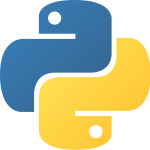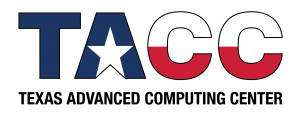Costa Rica National High Technology Center
August 18 -22, 2025
The Costa Rica National Research and Education Network: RedCONARE and the Costa Rica National High Technology Center (CeNAT) are proud to host the next Costa Rica Big Data School 2025.
This school will be hands-on style. Working with live coding in conjunction with lectures discussing the art of scientific programming, algorithm design, and data science. Instructors will guide attendees through the Computational Research cycle. Students will participate in a coding challenge to develop a computational model writing code in Python, generate data to verify and validate information, applying machine learning techniques to the data set and find interesting outcomes and revalidate the data.
We hope you enjoy what we have prepared, and take full advantage of this exciting event.
M.Sc. Carlos Gamboa Venegas
RedCONARE Scientific Coordinator
Costa Rica Big Data School Chair
Instructors
Susan Lindsey
Technical Information Coordinator
Texas Advanced Computing Center
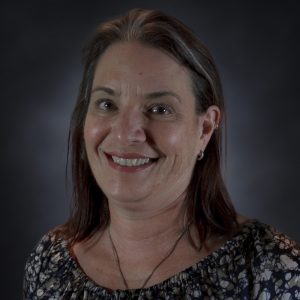
Biography: Susan is TACC’s Technical Information Coordinator. As such, she is responsible for gathering and presenting timely, consistent and accurate technical information to the supercomputing user community. She will also be evaluating and implementing emerging technologies related to the dissemination and presentation of technical content.
Susan comes to TACC after eight years at the San Diego Supercomputer Center where she researched and programmed on a variety of computational biology projects.
Charlie Dey. B.A.
Director, Training And Professional Development
User Services Texas Advanced Computing Center
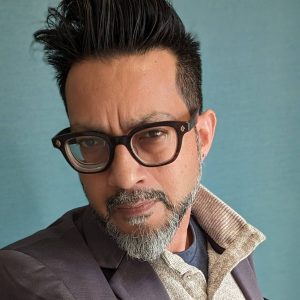
Biography: Charlie Dey is the Director of Training and Professional Development within the User Services group at the Texas Advanced Computing Center (TACC). With a background in web development, scientific computing, and cybersecurity, Charlie leads TACC’s strategic vision for higher education and professional training—designing programs that prepare the next generation of researchers, educators, and professionals to engage with advanced computing.
At TACC, Charlie develops and oversees curriculum for academic courses taught in partnership with multiple departments at The University of Texas at Austin, as well as for professional development workshops and training events that serve a diverse national and international audience. He is also a champion of reproducible science and community-driven education initiatives, frequently integrating emerging technologies such as AI, high-performance computing, and narrative computing into instructional design.
Before joining TACC, Charlie worked as a Senior Application Developer at the Carle Foundation and taught computer science at Parkland College in Champaign, Illinois. He was a member of a specialized application development team at the University of Illinois and served as a research consultant for NASA Ames Research Center, where he contributed to computational immunology and bioinformatics projects.
Charlie holds a Bachelor’s degree with concentrations in Computer Science and Biology and a Master’s degree in Cybersecurity from Eastern Illinois University. He also holds certifications in 3D programming and scientific visualization.
Invited Speakers

Brian A. Tefler
Biotechnology and Human Systems
Human Health and Performance Systems
Dr. Brian A. Telfer is a senior staff member in the Human Health and Performance Systems Group at MIT Lincoln Laboratory. In this role, he provides technical leadership in applications relating to early detection of human performance degradation, human performance enhancement, and combat casualty care. His expertise spans biosignal and image processing, machine learning and artificial intelligence, system analysis, rapid prototyping and technology transition. He has a special interest in transitioning bioengineering technology that has been restricted to hospitals and research laboratories into field and home environments.

Maria Auxiliadora Mora Cross
Profesor
Centro de Investigaciones en Computación
Escuela de Ingeniería en Computación
Program
This 4–5 day hands-on AI Workshop is designed to introduce participants to foundational AI techniques using Python and guide them through the full data analysis pipeline—from exploration to forecasting. The workshop begins with a shared dataset and step-by-step demonstrations of how to apply AI methods such as classification, clustering, regression, and time series forecasting to gain insights. Participants will then use these techniques to model and project future data trends. In the final day and a half, attendees will work in teams to select their own datasets, analyze them using the techniques they’ve learned, and present their findings, including a discussion of the AI methods used and the insights gained.
| Date & Time | Monday 18 | Tuesday 19 | Wednesday 20 | Thursday 21 | Friday 22 |
|---|---|---|---|---|---|
| Foundations and Setup | AI Techniques – Classification and Clustering | AI Techniques – Regression and Forecasting | Team Projects – Dataset Exploration and Analysis | Team Projects – Final Presentation | |
| 08:30 – 10:30 | Talk: RedCONARE Introduction to the workshop goals and structure Setting up the Python environment | Introduction to supervised vs. unsupervised learning | Introduction to linear and non-linear regression models | Form teams and identify datasets of interest (sources: Kaggle, UCI, etc.) | Finalize analysis and visualizations Speaker: Brian A. Telfer, MIT Lincoln Laboratory |
| 10:30 – 11:00 | Break | ||||
| 11:00 – 13:00 | Introduction to the shared dataset Data cleaning and exploratory data analysis (EDA) techniques | Applying classification algorithms (e.g., Decision Trees, KNN, Logistic Regression) | Talk: Estimación de incertidumbre en modelos de lenguaje generativos para preguntas y respuestas en un dominio técnico cerrado en español Speaker: Maria Mora Cross, TEC | Perform data cleaning and EDA Select and apply appropriate AI techniques Talk: End-to-End Proactive Talent Retention Capability using Machine Learning and Advanced Analytics. Jonathan Sequeira, Intel | Teams present findings, methodology, and insights |
| 13:00 – 14:00 | Lunch | ||||
| 14:00 – 16:00 | Basic visualizations and feature engineering | Hands-on with clustering (e.g., K-Means, DBSCAN) Discussion on model evaluation and performance metrics | Time series analysis and forecasting (e.g., ARIMA, LSTM basics) Applying models to project future trends in the dataset Error analysis and model tuning | Begin working on analysis and presentation prep | Group discussion on techniques used and key takeaways Wrap-up and feedback session |
| 16:00 – 16:20 | End of day | ||||
Organizers
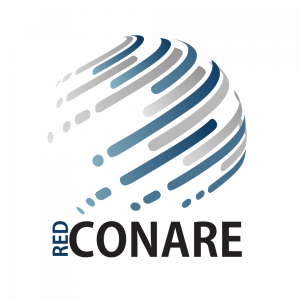
The Advanced Computing Laboratory (CNCA) at Costa Rica High Technology Center (CeNAT) is a multidisciplinary space where scientific discovery is accelerated through an advanced computing infrastructure. This infrastructure includes not only specialized and updated hardware, but also a set of efficient applications and well-trained staff in order to take advantage of all the technology. This allows CNCA to work in the main dimensions of research, project development, training, and services provision.
Sponsors
Location
Registry
Tuition fee
Participation is free. There are no tuition costs associated with participating in this school for those affiliated to CONARE institutions.
Maximum quota
The maximum quota is 50 participants.
Inscription
CLOSED
Important dates:
- The closing of the application process to the School: July 31th.
- Notification of acceptance/rejection in the participation of the School: August 6th.
Requirements
Being a student, teacher or researcher of any public university (UCR, TEC, UNA, UNED, UTN), from CONARE or any of its ascribed programs: CeNAT, PEN and SINAES.
Also, we are admitting functionaries of the Ministries and Public Entities of the Government of Costa Rica. (Limited spaces)
Have an intermediate English knowledge (reading and hearing). All of the presentations and exercises are going to be in this language.
Having basic programming skills with Python and basic Linux handling.
